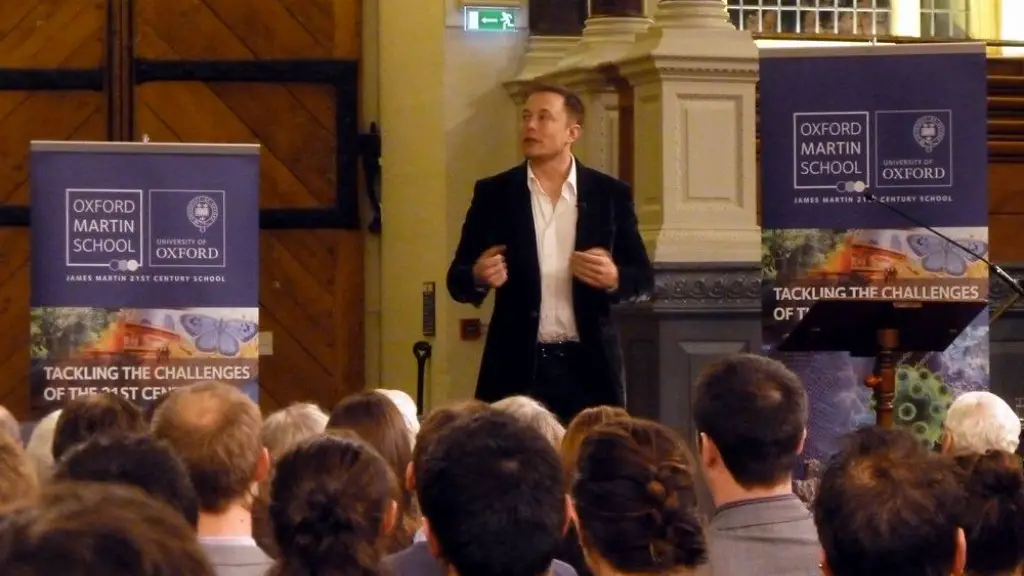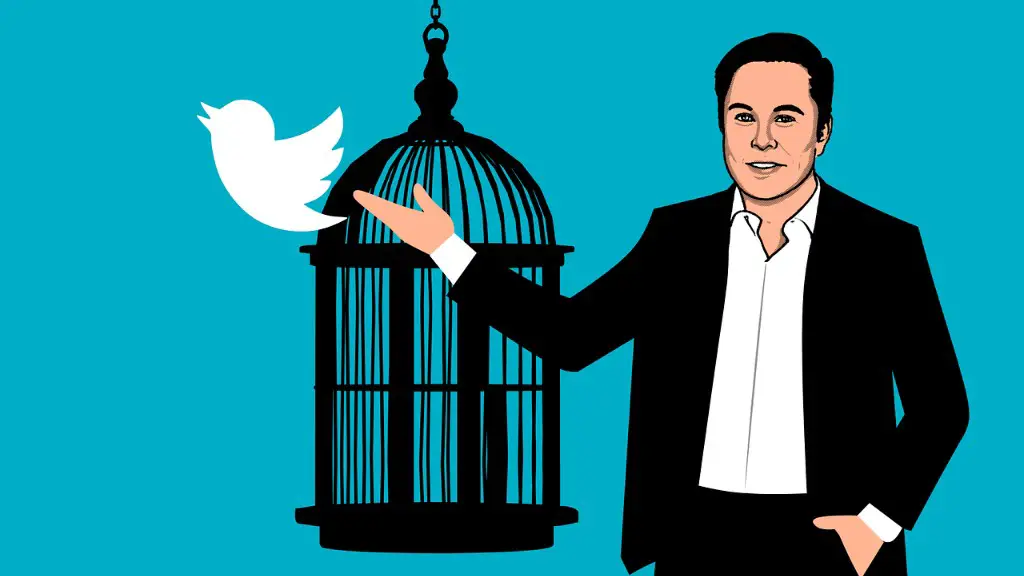Elon Musk is an innovator and entrepreneur whose businesses have fundamentally changed the way we consume technology and view disruption in industries like transportation, energy, and manufacturing. But as his businesses have grown, so have his personal fortunes, and with them, his tax bills. So how much did Elon Musk pay in taxes?
According to a report published by the Institute on Taxation and Economic Policy (ITEP), a non-partisan think tank that focuses on federal, state, and local taxation, since 2009, Elon Musk and his companies have paid just 3.27 percent of their income in federal taxes. That’s well below the statutory corporate tax rate of 21 percent and far below the top individual income tax rate of 37 percent.
The ITEP report also found that between 2009 and 2018, Elon Musk’s companies paid $2.2 billion in state and local taxes, which includes income, sales, property and payroll taxes. Despite this, the ITEP report argues that Musk and his companies are still not paying their fair share. They point to the fact that in 2019 Musk earned $770 million, despite the fact that he paid just $68 million in taxes that year.
Tax experts also point out that much of the benefit of Musk’s income comes from companies he founded and controls, such as Tesla and SpaceX, which use a variety of tax avoidance strategies to reduce their overall tax bill. They note, for example, that Tesla has structured many of its operations and investments in foreign countries with lower tax rates, allowing it to avoid paying higher levels of income tax in the US.
Musk himself has defended his tax bill, arguing that he “pays many millions of dollars in taxes” and that he is “a significant contributor to job creation and economic opportunity” in the United States.
Regardless of one’s opinion on Musk’s tax rate, it’s clear that his businesses have been incredibly successful. His companies have revolutionized entire industries, and it’s understandable that people would want to examine how much he and his businesses are paying in taxes.
Tax Avoidance Strategies
One of the main ways that Elon Musk and his companies have been able to reduce their taxes is through the use of tax avoidance strategies. These strategies can involve anything from taking advantage of loopholes in the tax code, to taking advantage of lower tax rates in foreign countries.
In addition to using tax avoidance strategies, Musk and his companies have also made use of other tax-saving strategies, such as setting up Employee Stock Ownership Plans (ESOPs). These plans allow Musk and his companies to defer taxes on the income derived from stock options by transferring the income to employee accounts and deferring the taxes on the distributed income until the recipients begin to use the funds.
Furthermore, Musk has set up a complex network of personal and corporate entities that allows him to route funds through different jurisdictions and thereby reduce the overall tax burden.
While these strategies can be legally used to reduce taxes, they are often seen as unpopular with the public. Many argue that these strategies are used by complex businesses such as that of Elon Musk and his companies to reduce the amount of taxes they pay, while small businesses and individuals who cannot take advantage of these strategies pay a much higher rate of taxes.
Tax Controversies
Elon Musk and his companies have been subjected to various tax controversies over the past few years. In particular, Musk and his companies have come under fire for their use of offshore accounts and companies to reduce their tax burden. In 2016, for example, reports emerged that Tesla had set up a network of at least 25 subsidiaries in the Netherlands and other tax-haven countries.
The issue of tax avoidance and tax avoidance strategies has also been a source of controversy with regards to other tech companies, such as Google and Apple. These companies have been accused of using various sophisticated strategies and international tax loopholes to reduce their effective tax rate, while smaller businesses and individuals pay a much higher rate of taxes.
These controversies have led to a wave of public opinion against tech companies, with some even calling for higher taxes on the “super-rich”, such as Musk. These calls for higher taxes have been met with resistance from some sectors of the public, who argue that raising taxes would stifle innovation and economic growth.
Government Interventions
In order to address public concerns about tax avoidance, the government of the US and other countries have proposed various interventions. In 2014, the US government proposed the Foreign Account Tax Compliance Act, which aimed to crack down on tax avoidance by US citizens who may be hiding funds in offshore accounts. While this act was ultimately unsuccessful, it did shed light on some of the tax avoidance strategies used by businesses and individuals.
Other countries, such as the UK, have introduced a Digital Services Tax, which seeks to target tech companies such as Google, Amazon, and Apple which have significant revenue but pay very little in taxes. This new tax seeks to reduce the perceived unfairness of tech companies paying lower taxes when compared to smaller businesses.
Finally, in 2021, the US government introduced a new Corporate Tax Reform Act, which introduced a minimum corporate tax rate for companies with revenue of more than $100 million. The hope is that this will help to curb some of the aggressive tax avoidance tactics employed by larger businesses.
Elon Musk’s Social Impact
Despite the controversies surrounding Elon Musk’s taxes, it’s difficult to deny the impact he has had on society. His companies have revolutionized entire industries, and it’s no exaggeration to say that businesses like Tesla and SpaceX are now part of the fabric of modern life. They have inspired new generations of innovators, entrepreneurs, and engineers, and will undoubtedly continue to do so for years to come.
Furthermore, Musk’s innovations have had a significant environmental impact. Tesla’s electric vehicles have helped to reduce emissions, while SpaceX has helped to make space exploration more accessible. Additionally, through his philanthropy, Musk has made a significant impact on access to clean water, healthcare, and education in some of the world’s poorest communities.
In conclusion, while it’s understandable why people would be critical of Elon Musk’s tax bill, it’s clear that his innovations and businesses have had a profound and lasting impact on our lives. His drive to innovate has helped to revolutionize the way we think about and use technology, and his social impact cannot be denied.
Progressive Taxation
In order to address public concerns about the perceived unfairness of tax avoidance, many countries have adopted progressive taxation systems. This system taxes wealthier individuals and businesses at a higher rate than those of lower incomes, in order to make the tax system more equitable.
In the US, the progressive income tax system is designed to ensure that the higher one’s income, the higher the tax rate imposed on it. This means that those with higher incomes will pay a higher percentage of their income in taxes than those with lower incomes.
The idea behind a progressive system of taxation is to ensure fairness and to reduce the perceived unfairness of tax avoidance or evasion. While some argue that a progressive system can be inefficient, proponents of the system argue that it is an effective way to ensure that those with higher incomes pay their fair share of taxes.
International Tax Reforms
In recent years, there have been a number of international tax reforms aimed at reducing the perceived unfairness of tax avoidance. The most notable examples of these reforms have been the Base Erosion and Profit Shifting (BEPS) project and the Common Reporting Standard (CRS).
The BEPS project is an initiative of the Organisation for Economic Co-operation and Development (OECD) which seeks to reduce the perceived unfairness of tax avoidance by strengthening existing international tax norms. The Common Reporting Standard (CRS) is an initiative of the OECD aimed at creating a common global standard for the automatic exchange of financial information between governments.
Both of these initiatives are designed to close down any loopholes which may be used to reduce one’s tax burden and to make it easier for governments to enforce their tax laws and deter tax avoidance.
Conclusion
The debate surrounding Elon Musk’s taxes is one which is likely to continue for some time. While it is understandable why people take issue with his tax rate, it’s difficult to deny the massive impact his innovations have had on the world. It is also important to understand the various tax avoidance strategies and international tax reforms which have been proposed in order to reduce the perceived unfairness of taxes for individuals and businesses.




